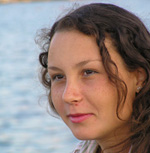 Writers' Suffering! Writers' Suffering!
A writer's life! What does it look like? When I was a child, I was curious about their lives. I mean “did they always write whenever a thought occurred?” The questions remained in my mind to be answered later. Now, I'm fond of reading the biographies of authors. As much as I've observed, this job requires the most dedication, patience and self-sacrifice. It is one of the most arduous tasks, taking months, even years, to complete 10 or 20 lines of a poem or novel. The fruits of hard work may be reaped too many years later. And it is so unfortunate that the writer may gain success even posthumously. Being a writer requires the ability to express one's self effectively, as well as immersing oneself to the craft-I find that rather difficult.
The main thing I want to emphasize is that while reading, I feel as though I am gaining maturity and experience. After contemplating why I would feel this way, it occurred to me that perhaps it is because of the writers' childhood-possibly a period full of suffering and life-changing moments that allowed the writer to produce such quality work.
Could it be really? Here are a few examples: Among so many foreign writers, I have only discovered one Turkish author suitable to my purpose! I would be very much grateful for further suggestions, if my readers happen to know of more examples.
Elif Žafak is a nomad and a free-spirited girl raised by her mother. Her parents had divorced and lived in different regions. Her setting often changes profoundly, the ground beneath her feet was always subject to change, her world often riddled with sudden ruptures. An introvert with neither siblings nor friends, she lived in her own dreamy world, always keeping diaries. She says, “The only colorful things in my life were novels. Writing was like a shelter to me, and I always escaped into the world of books. This is how my love for writing began.”
Charles Dickens worked in a blacking factory while his father went to prison for debt and lost his mother at an early age. As alluded to in David Copperfield, “I had no advice, no counsel, no encouragement, no consolation, no assistance, no support, of any kind, from anyone, that I can call to mind, as I hope to go to heaven!”
It was only because of publicity for a prestigious literary prize that Janet Frame's The Lagoon won that she escaped being mutilated by a scheduled brain operation. In fact it was revealed that she wasn't schizophrenic, although she had been traumatized by the abuses she suffered from the ignorance of others, as well as spite. Coming from a working-class family, her childhood was marred by the deaths of two of her adolescent sisters.
Evacuated as a child to live with her maternal grandmother, Angela Carter battled anorexia as a teenager.
Obsessed with raising a proper daughter, Doris Lessing's mother enforced a rigid system of rules and hygiene at home and installed her in a convent school, where nuns terrified their charges with stories of hell and damnation. Later, she dropped out of high school at the age of thirteen; and that was the end of her formal education.
Actually, I share the similar view with Lessing in this matter. She claims “unhappy childhoods seem to produce fiction writers. It wasn't apparent to me then. Of course, I wasn't thinking in terms of being a writer-I was just thinking about how to escape, all the time.” I believe it is admirable that they were all able to turn bad things into good things. So then, why not trying to think in this way whenever faced with an unfortunate event? Certainly it's not necessary to be a writer! By Müge Tekin (IE/IV)
 |







